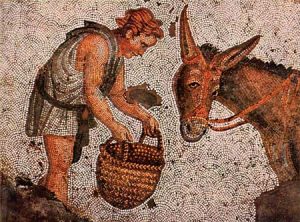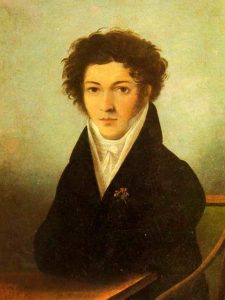ancient culture
Puglia “Golden Ass”
 The Roman writer Apuleius won his main glory with the novel Metamorphoses (Transformations). Subsequently, this novel, in connection with the high appreciation of its readers, received another name, the Golden Ass.
The Roman writer Apuleius won his main glory with the novel Metamorphoses (Transformations). Subsequently, this novel, in connection with the high appreciation of its readers, received another name, the Golden Ass.
At the beginning of the novel, Apuleu says: “I begin the story in order to weave various fables in Milesian manner.” By this, he points to the closeness of his work to the Greek stories of Aristide of Miletus, translated into Latin in the first century. BC er By Cornelius of Sizenna. Continue reading
English theater of the era of Shakespeare
 Along with the development of dramatic poetry in England, the stage production of plays was also improved. The great importance of Shakespeare’s dramas arouses interest in the design of the theater in his time. The knowledge of the stage situation is necessary for understanding the drama of Shakespeare, as the dramas of Sophocles and Euripides become clear only with the knowledge of the structure of the Greek theater. The English drama, like the Greek, is derived from religious plays. The Catholic Church allowed a comic element in the mysteries and morals; Reformation did not tolerate it. England adopted Calvinism in a gentle form given to him by the government. Continue reading
Along with the development of dramatic poetry in England, the stage production of plays was also improved. The great importance of Shakespeare’s dramas arouses interest in the design of the theater in his time. The knowledge of the stage situation is necessary for understanding the drama of Shakespeare, as the dramas of Sophocles and Euripides become clear only with the knowledge of the structure of the Greek theater. The English drama, like the Greek, is derived from religious plays. The Catholic Church allowed a comic element in the mysteries and morals; Reformation did not tolerate it. England adopted Calvinism in a gentle form given to him by the government. Continue reading
Two crosses of Konstantin Batiushkov
 This year marks the 230th anniversary of the birth of Konstantin Nikolaevich Batyushkov (1787–1855) and the 200th anniversary of the release of his only book, the two-volume book Experiments in Verse and Prose (1817). An outstanding personality – bright, heroic and tragic – the Russian poet Konstantin Batiushkov occupied a special place in the history of Russian literature. Pushkin considered him one of his teachers in poetry, recognized the works of Batiushkov as a poetic miracle and in this sense called him a “wonderworker”. Continue reading
This year marks the 230th anniversary of the birth of Konstantin Nikolaevich Batyushkov (1787–1855) and the 200th anniversary of the release of his only book, the two-volume book Experiments in Verse and Prose (1817). An outstanding personality – bright, heroic and tragic – the Russian poet Konstantin Batiushkov occupied a special place in the history of Russian literature. Pushkin considered him one of his teachers in poetry, recognized the works of Batiushkov as a poetic miracle and in this sense called him a “wonderworker”. Continue reading



